The Winning Team

Brief Synopsis
Cast & Crew
Lewis Seiler
Doris Day
Ronald Reagan
Frank Lovejoy
Eve Miller
James Millican
Film Details
Technical Specs

Synopsis
In 1908, in rural Nebraska, telephone linemen Grover Cleveland Alexander is saving to buy a farm, so that he and sweetheart Aimee Arrants can marry, but his neighbors know that he would rather be playing baseball. When Alex stands up Aimee and her father to pitch against a "real" team from Galesburg, Illinois, Aimee's father reneges on giving them the down payment on the farm as a wedding present. However, Alex's strong, accurate pitching gets the attention of the team's manager, George Glasheen, who offers him $100 a week to pitch. Alex cannot resist the offer and joins the team, but sends his earnings to Aimee to put in the bank for their farm. However, during the season, he is struck in the head by a relay pitch and is knocked unconscious for three days, awakening with double vision. Unable to pitch accurately, Alex marries Aimee and resigns himself to farming, but secretly makes frustrated efforts to practice. At Christmas, Aimee admits to her mother-in-law that she was secretly glad when he had to give up baseball, but would now give anything for his happiness. During the winter, Glasheen trades Alex to Philadelphia, and after Alex's vision returns one morning in early spring, he and Aimee leave for spring training. At a pre-season game at the Baker Bowl in Philadelphia, Aimee befriends Margaret, the wife of catcher Bill Killefer, and begins to learn the details of the game, while Alex strikes out his opponents. During the next few years, Alex's pitching makes him a baseball hero. In 1915, while playing in St. Louis, Bill tells Alex that opponent Cardinal rookie, Rogers Hornsby, is about to be dropped unless he makes a hit, so when Hornsby comes up to bat, Alex generously throws him a pitch down the middle, which he easily hits. In 1917, both Alex and Bill are sold to the Chicago Cubs, but Alex is soon drafted and while in France, suffers dizziness. After the war, Chicago sports fans welcome Alex back, but Alex, now suffering dizzy spells, collapses on the field. The team doctor assumes that Alex suffered a sunstroke from the 104 degree temperature, but Alex secretly visits Dr. Johnson Conant, who diagnoses epilepsy and believes that Alex should quit baseball, as each blackout will leave him with less strength. Overwhelmed by the news, Alex makes Conant promise not to reveal his diagnosis. He then wanders the streets dejectedly, until he is invited into a speakeasy by a fan, and drinks too much. The next day, the newspaper reports that Alex is a "lush." Although he is not pitching well, Alex tries to hide his illness from Aimee and the team, but continues to drink. Confused by his behavior, Aimee leaves him. Later, when Alex is found passed out in the street, Joe McCarthy, the Cubs manager, fires him and sports fans are mystified why "Alex the Great" has fallen so low. After reading about Alex's troubles, Conant searches for Aimee to tell her about his disease. Meanwhile, Alex drifts from minor league teams to local teams and then drops out of sight. When he is found by the private investigator Aimee hires, he is part of a carnival sideshow. Aimee begs Hornsby, who is now the Cardinals' manager, to give Alex a chance. After consulting with Bill, Hornsby risks the team's opportunity for the pennant and hires Alex, who makes a splendid comeback. In 1926, the Cardinals are up against the Yankees in the World Series. The opener is to be the first game broadcast transcontinentally and the largest crowd ever is in attendance. Although everyone assumes a Yankee victory, Alex strikes out Babe Ruth and the Cardinals win. That night, seeing how tired Aimee is, Alex tells her that he looks for her in the stands and steals energy from her. The next day, which is the final game of the series, Alex is not scheduled to pitch, so Aimee stays home to pack. However, during the game, the pitcher develops a blister and Hornsby calls Alex to pitch. At home, when Aimee learns that Alex will be playing, she drops everything and rushes to the station. In the seventh inning, with the score 3-2 in the Cardinals' favor, the Yankees have loaded the bases with two outs. Alex is feeling dizzy, but sees Aimee in the stands as Tony Lazzeri comes up to bat. With the strength he gets from Aimee, Alex strikes Lazzeri out, and the Cardinals win the World Series. Alex's heroics become part of baseball legend.

Director
Lewis Seiler
Cast

Doris Day
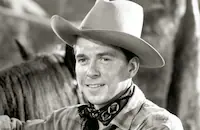
Ronald Reagan

Frank Lovejoy

Eve Miller

James Millican

Rusty Tamblyn

Gordon Jones
Hugh Sanders
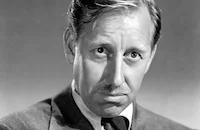
Frank Ferguson
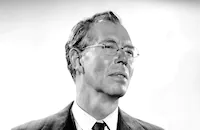
Walter Baldwin
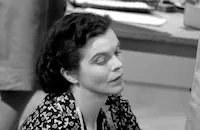
Dorothy Adams
Bob Lemon Cleveland Tigers
Jerry Priddy Detroit Tigers
Peanuts Lowry St. Louis Cardinals
George Metkovich Pittsbugh Pirates
Irving Noren Washinton Senators
Hank Sauer Chicago Cubs
Al Zarilla Chicago White Sox
Gene Mauch New York Yankees
Bonnie Kay Eddy
James Dodd
Tom Greenway
Russ Clark
Ralph Volkie
Fred Millican
Robert Orrell
William Kalvino
Pinky Woods
Arthur Page
Frank Macfarland
Tom Browne Henry
George Sherwood
Morgan Brown
Alex Sharp
Herb Lytten
Pat Flaherty
Billy Wayne
Harry Lauter
Glenn Turnbull
John Hedloe
Tom Daley
Alan Ray
Bill Slack
Rodney Bell
Clarence Straight
Henry Blair
Jack Wilson
Les O'pace
Dick Bartell
Gordon Clark
Steve Darrell
Larry Blake
Dick Ryan
Kenneth Patterson
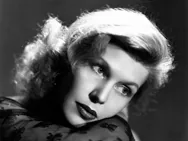
Kay Marlowe
Frank Scannell
Lou Manley
Jack Carr
John Kennedy
Ralph P. Gamble
Dayton Lummis
Billy Vernon

Jack Lemmon
Alan Foster
Tom Dugan
Jack Kenny
Ward Brant
Joey Ray
Donald Kerr
John Berardino
Joe Mcguinn
Frank Marlowe
Brick Sullivan
Charles Sullivan
Allan Wood
Crew
Mrs. Grover Cleveland Alexander
Al Alleborn
Douglas Bacon
Gordon Bau
David Buttolph
Alan Crosland Jr.
Bryan Foy
Merwin Gerard
Merwin Gerard
Sid Hickox
Emory Hoerger
Inez James
Stanley Jones
H. F. Koenekamp
William Kuehl
Seeleg Lester
Seeleg Lester
Jack Norworth
Maurice De Packh
Buddy Pepper
Jerry Priddy
Leah Rhodes
Russ Saunders
Ted Sherdeman
Arnold Statz
Albert Von Tilzer

Videos
Movie Clip


Trailer
Film Details
Technical Specs

Articles
The Winning Team
Doris Day, who was top-billed, plays Alexander's wife Aimee, who sticks by him through all his troubles. In fact, the "winning team" of the title refers not to any of the baseball teams for which Alexander played, but to the partnership between Alexander and his wife. This was no coincidence. Aimee Alexander was the film's technical adviser, and her name is featured prominently in the credits. Known at the time primarily for musicals, Day only had one song in The Winning Team, but turned in a strong dramatic performance.
At 41, Reagan was really too old to play Alexander in his prime as a pitcher, but Reagan worked hard, training for three weeks with Jerry Priddy of the Detroit Tigers, Bob Lemon of the Cleveland Indians, and Arnold "Jigger" Statz, a contemporary of Alexander. They taught him, Reagan recalled, "the difference between throwing from the mound and just throwing." He was believable as a baseball player, and handled the dramatic challenges of the role creditably as well.
But if the baseball looked authentic, The Winning Team suffers from the usual sanitized treatment of biographical films of the era, glossing over some important facts about the pitcher's life. Perhaps the biggest omission is that Alexander's epilepsy is never mentioned by name. In the film, his neurological disorder is diagnosed as double vision. Alexander himself had hidden his illness from the public, preferring to be known as a drunk rather than as someone who suffered from a debilitating illness. Reagan felt that continuing the cover-up in the film added to the stigma. "I've always regretted that we did not use the word, although we tried to get the idea across. The trouble was that a frank naming of the illness would have the ring of truth, whereas ducking it made some critics accuse us of inventing something to whitewash his alcoholism." The Winning Team accurately portrays a washed-up Alexander playing for a comedy baseball team, The House of David, and working in sideshows before his triumphant comeback in the 1926 World Series. But those humiliations actually happened after his career declined and his drinking increased, in the 1930s.
Decades later, baseball historian Bill James called The Winning Team "an awful movie, a Reader's Digest movie, reducing the events of Alexander's life to a cliché." But reviewers at the time were more polite. The Time critic wrote, "The Winning Team dramatizes the ups and downs of Alexander's career in conventional and sometimes fanciful screen style." Variety called it "A conventionally-treated screen biography," and praised the performances: "Ronald Reagan tackles the Alexander character, proving passable as a ballplayer and okay as the man. Doris Day, on whose name rests the film's chief marquee draw, contributes a sincere, moving portrayal as Alexander's wife."
For Reagan, The Winning Team would remain one of his favorites. As Tony Thomas writes in The Films of Ronald Reagan (1980), "The film gave Reagan one of his best opportunities as an actor, and one in which he conveyed both his own enthusiasm for the game and the glorious ups and painful downs of Grover Cleveland Alexander. It is an intelligent, skillful, sympathetic performance."
Director: Lewis Seiler
Producer: Bryan Foy
Screenplay: Ted Sherdeman, Seelag Lester, Merwin Gerard (based on a story by Lester and Gerard)
Cinematography: Sid Hickox
Editor: Alan Crosland, Jr.
Costume Design: Leah Rhodes
Art Direction: Douglas Bacon
Music: David Buttolph
Cast: Doris Day (Aimee Alexander), Ronald Reagan (Grover Cleveland Alexander), Frank Lovejoy (Rogers Hornsby), Eve Miller (Margaret), James Millican (Bill Killefer), Rusty Tamblyn (Willie Alexander), Gordon Jones (Glasheen), Hugh Sanders (McCarthy), Frank Ferguson (Sam Arrants), Bob Lemon, Jerry Priddy, Gene Mauch (ball players).
BW-99m.
by Margarita Landazuri

The Winning Team
Quotes
Trivia
Notes
The working titles of the film were Alex the Great, Alexander, the Big Leaguer and The Big League. As depicted in The Winning Team, Hall of Fame pitcher Grover Cleveland Alexander (1887-1950) suffered head injury, epilepsy and alcoholism, yet made one of the greatest comebacks in sports and is still considered one of the most successful pitchers in Major League history. His pitching was considered controlled, graceful and economical, with little wasted motion, and his fastball was hard to hit. Although the major facts of Alexander's life depicted in the film are true, some are presented out of order. According to a modern source, although there were rumors about Alexander's drinking habits, his alcoholism did not affect his playing until much later in his career. Alexander did suffer from double vision after being struck on the head by a ball, and seizures became apparent during his military service in 1918, which also caused partial deafness.
Alexander's greatest years as a player were between 1911 and 1917, when he pitched for the Philadelphia Phillies. He and his lifelong friend, catcher Reindeer Bill Killefer, were sold to the Chicago Cubs in 1917. In 1926, Cubs manager Joe McCarthy sold Alexander to the St. Louis Cardinals. That same year, as depicted in the film, Alexander struck out Tony Lazzeri, then pitched two hitless innings, which insured the Cardinal's victory in the World Series.
Although their appearance in the film has not been confirmed, December 1951 Hollywood Reporter news items add Michael Smith, Michael Howard, Jimmy McGann, Leroy Strand, Barry Buehler and Emil Meyer to the cast. According to a January 1952 Hollywood Reporter news item, James Millican was recalled to the studio to build up his role as catcher "Bill Killefer." Millican and his brother Fred, who made his acting debut in the film, were former professional baseball players. Ronald Reagan, who portrays "Alex" in the film, was a radio baseball announcer before Warner Bros. "discovered" him in the mid-1930s. According to Warner Bros. production notes, portions of the film were shot on location at the Warner Ranch in Calabasas and on Southern California playing fields, including the training field of the Pacific Coast League's Hollywood Stars in the San Fernando Valley.

Miscellaneous Notes
Released in United States on Video April 29, 1992
Released in United States Summer June 28, 1952
Released in United States on Video April 29, 1992
Released in United States Summer June 28, 1952














